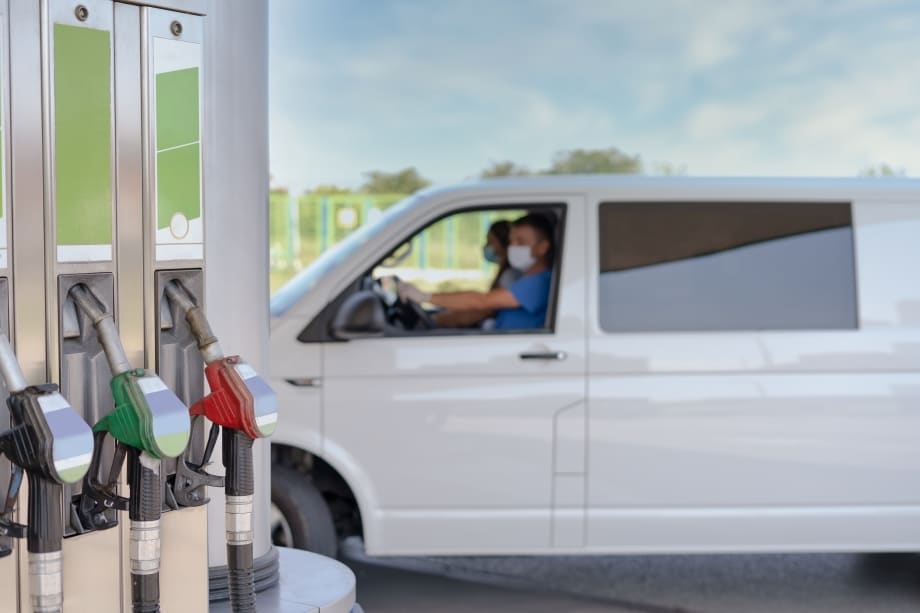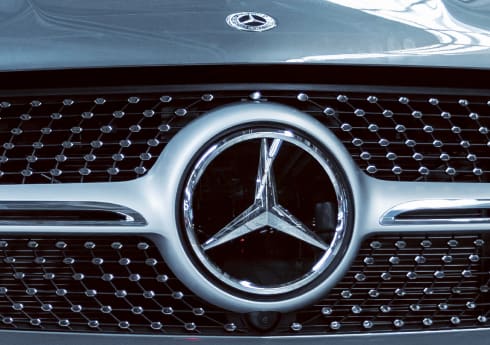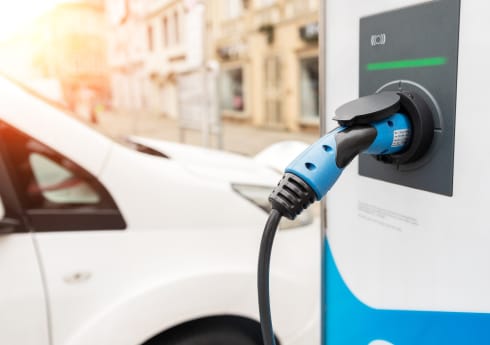Are All Vans Diesel?
Diesel is, without question, the dominant commercial vehicle fuel. According to a government report published in 2021, 96% of vans across the UK are powered by diesel. So, it is fair to say that nearly all vans are diesel.
While diesel vans lead by far the van industry, many businesses are starting to look for options. Alternative fuels, especially electric, are the future of commercial vehicles. And the future will come sooner than you think.
So, the answer to the question “are all vans diesel” is a definite no! Let’s explore what the alternatives are.
Future proof your business! Hire an electric van!

Van fuel types and alternatives
The van sector is at the intersection of three types of fuel – diesel, petrol and electric. Choosing between them is harder than it seems. Our guide dives into each of the three types and busts the myths around EVs to help you choose better and easier.
For a very long time, the diesel van has been the popular choice among both businesses and private owners, and we can see why. Diesel is more fuel efficient, provides more torque, and is better suited to heavy loads.
Petrol was once the most popular choice, but its time has long passed.
Petrol fuelled vans are too few and are hardly ever the first choice of businesses because of their higher fuel consumption. Petrol provides a smoother driving experience and is a better choice if you’re only driving on short distances. However, it’s not well suited for most commercial vehicles.
Alternative fuels, especially electric, are the future of the transport business and commercial vehicles. Electric vans are becoming more and more popular and are a great alternative to the diesel van. With the government pushing towards electric, this will likely become the norm sooner rather than later.
Electric vans – the new norm
We cannot ignore the rapid rise of the electric vans. There’s a real revolution on the market with electric vans quickly replacing the traditional diesel van. Huge fleet businesses, like Amazon for example, are already replacing their diesel vans by electric ones.
But why are electric vans growing in popularity so quickly? Here are some of their greatest strengths:
- Low running costs in terms of fuel and maintenance
- Zero CO2 emissions, allowing full access to ultra low emission zones
- Batteries have improved greatly compared to the ones of the first electric vehicles, meaning you can drive much longer
- You can’t go greener than this – they’re quiet and environmentally friendly
- Payloads have improved over time and will keep improving

The cost per mile of electricity is much lower than diesel, so you’d be saving a lot in terms of fuel. Also, electric vans cost less to maintain as the moving parts in an electric vehicle are fewer and, therefore, there are fewer things to break.
The electric vans don’t produce tailpipe emissions. This means less harmful CO2 and NOx emissions. It also greatly helps improving air quality in urban areas especially but not only. Of course, this also means you don’t have to worry about ULEZ tax ever again.
iCompario tip
Improve your business image by adding electric vans to your fleet. This shows your customers you’re environmentally conscious.
Busting the myths around electric vehicles
Most of you still think of electric vehicles as vehicles of the future. Well, the future is now – let’s understand it better.
The most common myths surrounding electric vehicles are well known. Not enough range, battery doesn’t last enough, they’re too slow, they’re not safe. We’ve heard it all before. But remember, they are just that – myths.
Join us in debunking the most common misconceptions about electric vehicles.
1. EVs don’t provide enough battery range
In reality, electric vehicles cover more than enough for daily use. If we take an average of 50 miles of driving a day, we can safely say that even older models of EVs can cover this range.
Most electric vehicles go for around 200 miles on a fully-charged battery. Some models even easily exceed this range, aiming for 250+ miles. And automakers have plans to release models that cover much longer ranges in the near future.
It’s true that how you drive or how much you load your vehicle affects your vehicle’s driving range. Even weather conditions can impact your range. But with the range most EVs provide, you can count that you’ll get wherever you need.
Besides, there are some tricks to keep you going:
• Drive carefully, go easy on the brakes. This helps recharge your battery through regenerative braking.
• Keep your speed steady and drive within the speed limits.
• Take notice of the charging points on your route just to anticipate your needs. Just in case you need one.
2. There are nowhere enough charge points for EVs
That’s one of the most common misconceptions surrounding the EVs. Most people worry they will drain their battery and be left hanging with no charge point nearby.
Well, not in the UK. Did you know that the UK has more rapid charges every 100 miles than any other country in Europe? There are 25,000+ public charge points across the UK and more than 4,500 rapid chargers. And this is in addition to home charging.
Over 500 chargers are added to the UK’s road network every month, out of which around 100 are rapid chargers.
3. EVs are too slow
Except they aren’t. In reality, electric vehicles are faster than their fuel-powered counterparts. How’s that even possible? Because an electric motor generates 100% torque instantly. As soon as you hit that accelerator pedal, you speed up instantaneously.
In fact, the Tesla Model S can reach 0-60mph in 2.5 seconds with its top version. This makes it one of the fastest cars in the world. Pretty impressive, isn’t it?
4. It takes too long to charge an EV
Truth is most EVs will be charged overnight, at home or near home. However, newer models will charge in 20 to 40 minutes if charged at a rapid charger.
Plan ahead if you’re taking a long journey, in case you need to top up charge. Look for charge points near restaurants or shopping centres, so you’ll have something interesting to do while you wait.
5. EVs are unsafe
The facts are that electric vehicles must meet the same safety standards as their conventionally powered counterparts to hit the road. To meet these standards, vehicles undergo extensive testing and EVs are no exception.
Moreover, EVs are fitted with safety features that shut down the electrical system in case of a collision or a short circuit.
Batteries catching fire in case of collision is nothing but a myth. Now busted!
6. EVs are too expensive
It’s true that EVs cost more to buy outright, but they make up in terms of maintenance and running costs. They come with a great advantage as electricity costs much less than fuel, they have fewer moving parts, which means lower maintenance costs.
Besides, with an electric vehicle you don’t have to pay vehicle excise duty (or tax road, as many know it) and you save on other taxes as well, such as ULEZ.
The government also supports the purchase of electric vehicles by offering a £2,500 grant for new EVs under £35,000.
And if purchasing an EV to add to your fleet doesn’t make sense, there are other options, like vehicle hire. There are enough lease types to choose from so you can be certain you’ll find the right one for your business.
We understand how buying an EV doesn’t make for your business. But long-term vehicle hire can be a cost-effective way to get an electric van. And you get to boost your company’s image.
All you have to do is fill in a short form and see how you can improve your fleet with an electric van or car.
Things to take home
Circling back to our initial question – are all vans diesel? – we can conclude that not only vans are not all diesel, but there are some great alternatives to diesel vans that will become the norm sooner than you’d expect.
Electric vans come with added benefits and the reassurance that your business is ready for the future. They are ready now to replace the conventional diesel van.
How can you add an electric van to your fleet? What van and deals are best for your company? What type of lease is best for you?
Complete our quick survey tool to find your best match.



